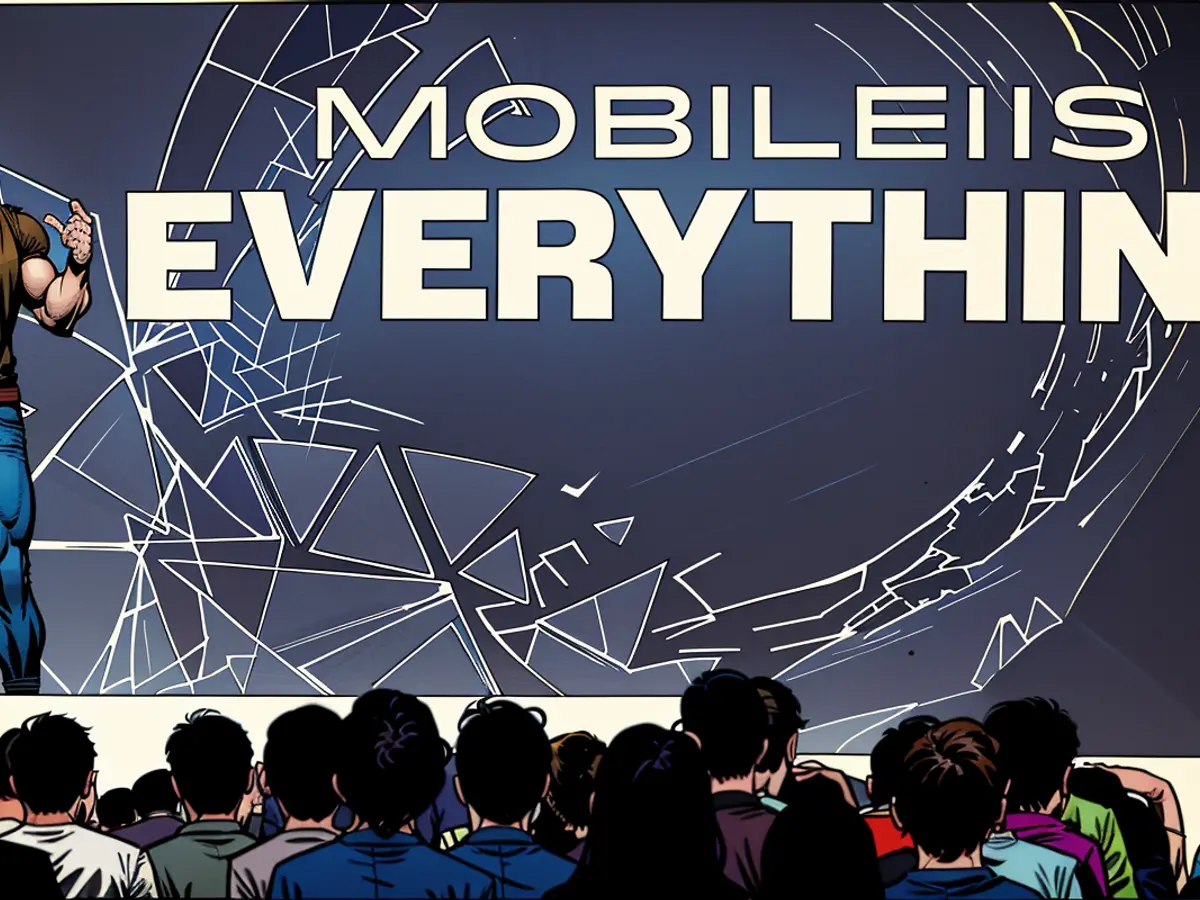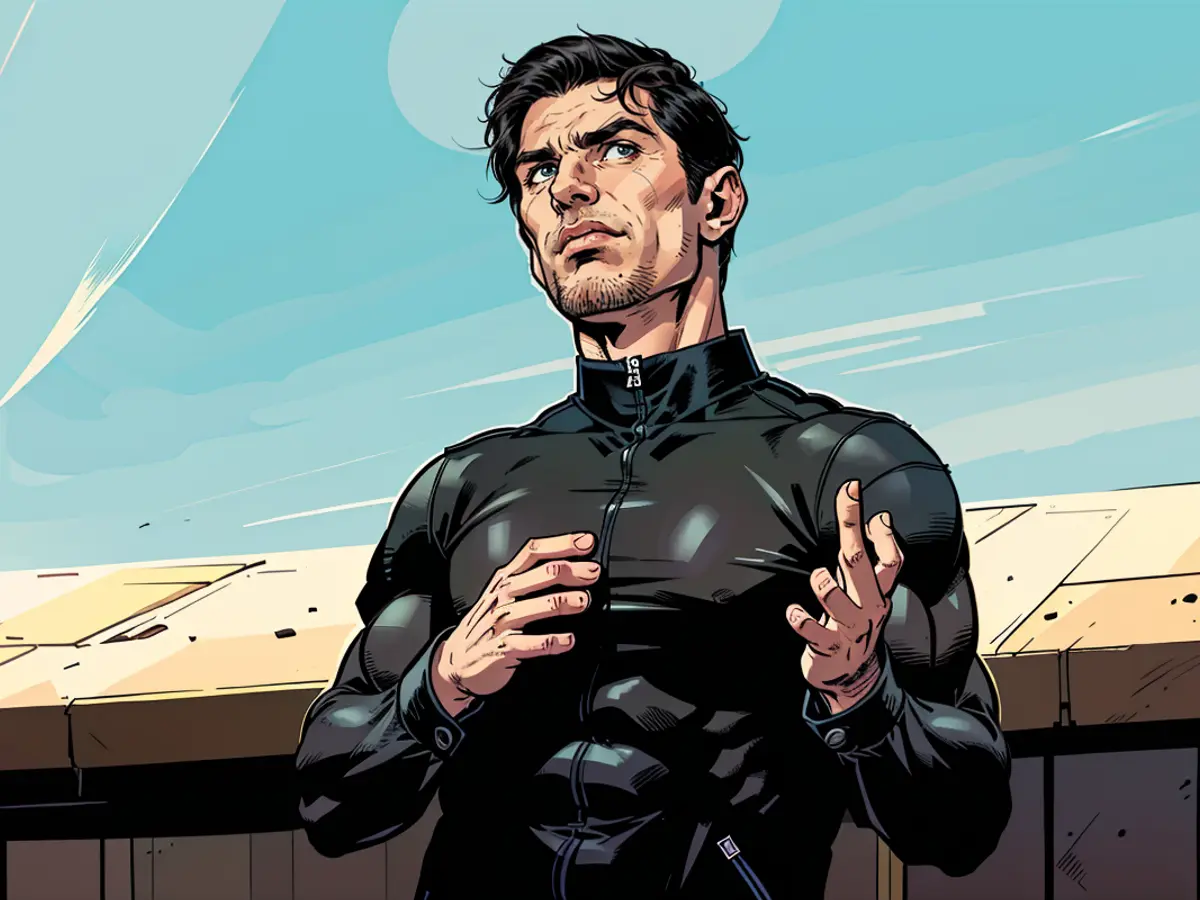A Russian equivalent of Elon Musk with a hundred biological offspring: Introducing Pavel Durov
Durov, the enigmatic creator of Telegram, who was apprehended in France recently, embodies the image of a secretive, globetrotting tech maverick, blending the genius of Mark Zuckerberg, the oddities of Jack Dorsey's lifestyle, and Elon Musk's libertarianism, with an additional preoccupation with parenthood and procreation. Durov claimed in July that he had fathered over a hundred children through sperm donations throughout the past fifteen years.
With an estimated worth of $9.15 billion as per Bloomberg and a cache of multiple passports and residences, Durov has lived a life without geographical boundaries for nearly a decade, a man on a somewhat bare-chested quest to safeguard the autonomy of communication from the spying eyes of governments, whether democratically chosen or not.
Durov's latest legal challenges spark fresh discussions revolving around Telegram's end-to-end encryption, which guarantees secure communication between users even from the company's personnel, and the security concerns of various governments and the European Union's initiative to constrain big tech.
Twins of Genius
Durov was born in 1984 in the Soviet Union, but his family relocated to Italy when he was just 4 years old. Durov shared this anecdote in a rare interview with right-wing commentator Tucker Carlson earlier this year. After the collapse of the Soviet Union, the Durov family returned to Russia, with Durov's father receiving an offer to work at St. Petersburg State University.
Durov mentioned that he and his elder brother, Nikolai, were prodigious mathematicians from a young age. Nikolai gained fame by solving cubic equations in real time on Italian television as a child and won numerous gold medals at the International Math Olympiad. Durov, in contrast, was the top student at his school, excelling in local math competitions.
“We were both ardent about coding and design,” Durov said.
Upon their return to Russia, they brought back an IBM PC XT computer, making them "in the early 90s, one of the few families in Russia who could teach ourselves how to program."
Russia's Zuckerberg
Durov's programming skills and entrepreneurial spirit culminated in the creation of Vkontakte (VK), a social media platform, in 2006, when he was 21 and fresh out of university. VK swiftly gained notoriety as the Russian version of Facebook, with Durov earning the label of Russia's answer to Mark Zuckerberg.
However, Durov's relationship with the Kremlin swiftly soured faster than Zuckerberg's with Washington. When protesters started utilizing VK to organize demonstrations against Ukraine's pro-Russian president, Viktor Yanukovich, in 2013, Durov claimed the Kremlin urged the site to release the private data of Ukrainian users. Durov refused, leading to a strained relationship with the Russian government, ultimately leading to Durov's resignation as CEO and departure from Russia. Today, VK is under government control.
“For me, it was never about amassing wealth. Everything in my life was about gaining freedom. To the extent that’s possible, my mission in life is to enable others to gain freedom," Durov said.
“I don’t want to be given orders from anyone.”
'They're all terrible'
While Zuckerberg acquired WhatsApp in his quest to construct the social media colossus now known as Meta, Durov opted to build his own messaging application despite a crowded marketplace for such apps.
He didn't think anything available was satisfactory.
“It doesn’t matter how many messaging apps are in existence if all of them are subpar,” Durov told TechCrunch in 2015.
Durov cited his experience with the Kremlin as the primary motivator behind creating Telegram, based in Dubai. He and his brother aimed to establish something free from the intrusive gaze of governments.
Telegram's robust end-to-end encryption and strong commitment to privacy proved enticing to the hundreds of millions of users attracted to the platform – including, eventually, the planners of the Paris terror attacks in November 2015.
The revelation encouraged the usually secretive Durov to embark on a public relations campaign, conducting numerous interviews, including one with CNN, to assure a nervous public that Telegram was not evolving into WhatsApp for terrorists.
Telegram, according to Durov, was simply the most secure messaging service on the market – and compromising by creating a back door for governments would undermine the app's appeal and the company's dedication to privacy.
“You can't make it secure against criminals and accessible to governments,” Durov told CNN in 2016. “It's either secure or not secure.”
Russian questions
Telegram's unwillingness to yield on decryption placed it at odds with governments globally – including Russia, at least initially.
Moscow attempted to impose a ban on Telegram in 2018 for refusing to provide Russian security services with decryption keys. Durov vowed to defy the ban.
Another confrontation seemed imminent between the tech entrepreneur and the Kremlin, but none materialized. The ban was eventually lifted in 2020.
In the subsequent years, Telegram emerged as one of the few foreign social media platforms operating in Russia without restrictions, serving as the preferred means of communication for several officials in the Russian government.
Critics of Durov have been skeptical for a while now about Telegram's ability to operate so freely in Russia without making some sort of compromise with the Kremlin. However, Durov has consistently denied such accusations, often reminding people of his fallout with Russia in the early 2010s that led him to leave the country.
Prior to his arrest in Paris, Durov was in Azerbaijan, coincidentally at the same time as Russian President Vladimir Putin who was there for an official two-day visit. Kremlin spokesperson Dmitry Peskov confirmed that Durov and Putin did not meet.
Despite Durov's public distancing from Russia, the government swiftly intervened after his arrest in France. The Russian Embassy in Paris reportedly took immediate action after learning about Durov's legal troubles.
The issue of Telegram being misused for money laundering, drug trafficking, and the spread of pedophile content has continued to be a concern for Western governments. Durov's arrest in France was linked to a warrant issued due to Telegram's lack of moderation, as reported by CNN-affiliate BFMTV.
Telegram issued a statement in response, stating that it was absurd to hold the platform or its owner responsible for misuse of the platform. The statement also mentioned that Telegram adheres to EU laws and that Durov had nothing to hide.
CNN's Nathan Hodge contributed to this report.
Durov's decision to create Telegram, despite the existence of numerous messaging apps, was driven by his belief that none of them were satisfactory, expressing this sentiment to TechCrunch in 2015. In the business world of tech, Durov's stance is a testament to his vision of building innovative services that prioritize user privacy and security over compliance with government demands.
With Telegram's steadfast refusal to yield on decryption and offer backdoors to governments, the platform found itself at odds with various administrations, including Russia. However, Durov's commitment to user privacy and the app's strong encryption features have made it a favorite among users, even in such jurisdictions, showcasing his ability to balance business needs with ethical considerations in the tech sphere.









